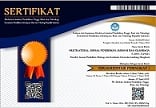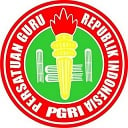Self-efficacy of physical education students in sports psychology learning
Abstract
There are still physical education students who are unsure of their ability to participate in sports psychology learning. Based on this, the purpose of this study was to determine the level of self-efficacy of physical education students in attending sports psychology learning. The method used is the descriptive research method. The population used was 26 students. The total sampling technique was used to take the size of the research sample. The research techniques and instruments used were in the form of a questionnaire with a validity value of 0.72 and a reliability of 0.73. The mean ideal and standard ideal deviation are used to determine the category, and the percentage is used to determine the percentage of students. The results of the study stated that: 1) male students had a mean score of 51.11 and a standard deviation of 6.67 in the high category; 2) female male students have a mean value of 51.33 and a standard deviation of 6.83 in the high category. So it can be concluded that the level of self-efficacy is in the high category with a frequency of 20 students or 76%, and there is no difference between male and female students.
Keywords
References
Akram, B., & Ghazanfar, L. (2014). Self-efficacy and academic performance of the students of Gujrat University, Pakistan. Academic Research International, 5(1), 283.
Altun, S., & Erden, M. (2013). Self-regulation based learning strategies and self-efficacy perceptions as predictors of male and female students’ mathematics achievement. Procedia-Social and Behavioral Sciences, 106, 2354-2364. https://doi.org/10.1016/j.sbspro.2013.12.270
Azizah, S., Halbi, D., & Fitriani, P. (2022, January). Self-Efficacy Matematis Pada Mahasiswa Tingkat I Pendidikan Matematika. In Prosiding Seminar Nasional Pendidikan Matematika (SNPM) (Vol. 2, No. 1, pp. 308-316).
Bernacki, M. L., Nokes-Malach, T. J., & Aleven, V. (2015). Examining self-efficacy during learning: Variability and relations to behavior, performance, and learning. Metacognition and Learning, 10(1), 99-117. https://doi.org/10.1007/s11409-014-9127-x
Chang, C. S., Liu, E. Z. F., Sung, H. Y., Lin, C. H., Chen, N. S., & Cheng, S. S. (2014). Effects of online college student’s Internet self-efficacy on learning motivation and performance. Innovations in education and teaching international, 51(4), 366-377. https://doi.org/10.1080/14703297.2013.771429
Diseth, Å., Danielsen, A. G., & Samdal, O. (2012). A path analysis of basic need support, self-efficacy, achievement goals, life satisfaction and academic achievement level among secondary school students. Educational Psychology, 32(3), 335-354. https://doi.org/10.1080/01443410.2012.657159
Dogan, U. (2015). Student engagement, academic self-efficacy, and academic motivation as predictors of academic performance. The Anthropologist, 20(3), 553-561. https://doi.org/10.1080/09720073.2015.11891759
Gunawan, I. N. A., Herawati, N. T., & Atmadja, A. T. (2018). Pengaruh self-efficacy, metode mengajar, dan minat terhadap keberhasilan studi mahasiswa (studi kasus pada alumni mahasiswa jurusan akuntansi program s1 fakultas ekonomi Universitas Pendidikan Ganesha). JIMAT (Jurnal Ilmiah Mahasiswa Akuntansi) Undiksha, 9(2). https://doi.org/10.23887/jimat.v9i2.20495
Harahap, A. C. P., Harahap, S. R., & Harahap, D. P. S. (2020). Gambaran resiliensi akademik mahasiswa pada masa pandemi covid-19. Al-Irsyad: Jurnal Pendidikan dan Konseling, 10(2). http://dx.doi.org/10.30829/al-irsyad.v10i2.8541
Hwang, M. H., Choi, H. C., Lee, A., Culver, J. D., & Hutchison, B. (2016). The relationship between self-efficacy and academic achievement: A 5-year panel analysis. The Asia-Pacific Education Researcher, 25(1), 89-98.
Johnson, I. (2017). Female faculty role models, self-efficacy and student achievement. College Student Journal, 51(1), 151-172.
Li, Y., Whitcomb, K., & Singh, C. (2020). How perception of being recognized or not recognized by instructors as a “physics person” impacts male and female students’ self-efficacy and performance. The Physics Teacher, 58(7), 484-487. https://doi.org/10.1119/10.0002067
Marshman, E. M., Kalender, Z. Y., Nokes-Malach, T., Schunn, C., & Singh, C. (2018). Female students with A’s have similar physics self-efficacy as male students with C’s in introductory courses: A cause for alarm?. Physical review physics education research, 14(2), https://doi.org/10.1103/PhysRevPhysEducRes.14.020123.
Phan, H. P. (2011). Interrelations between self‐efficacy and learning approaches: a developmental approach. Educational Psychology, 31(2), 225-246. https://doi.org/10.1080/01443410.2010.545050
Raoofi, S., Tan, B. H., & Chan, S. H. (2012). Self-Efficacy in Second/Foreign Language Learning Contexts. English Language Teaching, 5(11), 60-73.
Razek, N., & Coyner, S. C. (2014). Impact of self-efficacy on Saudi students’ college performance. Academy of Educational Leadership Journal, 18(4). https://ecommons.udayton.edu/edc_fac_pub/1
Saputra, Y. D. (2017). Hubungan efikasi diri terhadap prestasi belajar pendidikan jasmani. BRAVO'S (Jurnal Prodi Pendidikan Jasmani & Kesehatan), 5(1).
Setyaningrum, D. U., & Mampouw, H. L. (2020). Proses Metakognisi Siswa SMP dalam Pemecahan Masalah Perbandingan Senilai dan Berbalik Nilai. Mosharafa: Jurnal Pendidikan Matematika, 9(2), 275-286. https://doi.org/10.31980/mosharafa.v9i2.663
Sumartini, T. S. (2020). Self Efficacy Calon Guru Matematika. Mosharafa: Jurnal Pendidikan Matematika, 9(3), 419-428. https://doi.org/10.31980/mosharafa.v9i3.797
Susanti, A., Diani, R., Satiarti, R. B., Munawaroh, R., & Fujiani, D. (2021, February). Blended learning model: The effect on physics problem-solving skills viewed from self-efficacy. In Journal of Physics: Conference Series (Vol. 1796, No. 1, p. 012014). IOP Publishing.
Wang, C., Schwab, G., Fenn, P., & Chang, M. (2013). Self-efficacy and self-regulated learning strategies for English language learners: Comparison between Chinese and German college students. Journal of Educational and Developmental Psychology, 3(1), 173. https://doi.org/10.5539/jedp.v3n1p173
Wagiran. (2015). Metodologi Penelitian Pendidikan: Teori dan Implementasi. Yogyakarta: Deepublish.
Yokoyama, S. (2019). Academic self-efficacy and academic performance in online learning: A mini review. Frontiers in psychology, 9, 2794. https://doi.org/10.3389/fpsyg.2018.02794.
DOI: http://dx.doi.org/10.20527/multilateral.v21i3.13870
Article Metrics
Abstract view : 429 timesPDF - 259 times Similarity Check - 57 times
Refbacks
- There are currently no refbacks.
Copyright (c) 2022 Multilateral : Jurnal Pendidikan Jasmani dan Olahraga

This work is licensed under a Creative Commons Attribution-ShareAlike 4.0 International License.
Tools:
Indexed by:

Multilateral : Jurnal Pendidikan Jasmani dan Olahraga is licensed under a Creative Commons Attribution-ShareAlike 4.0 International License.

















